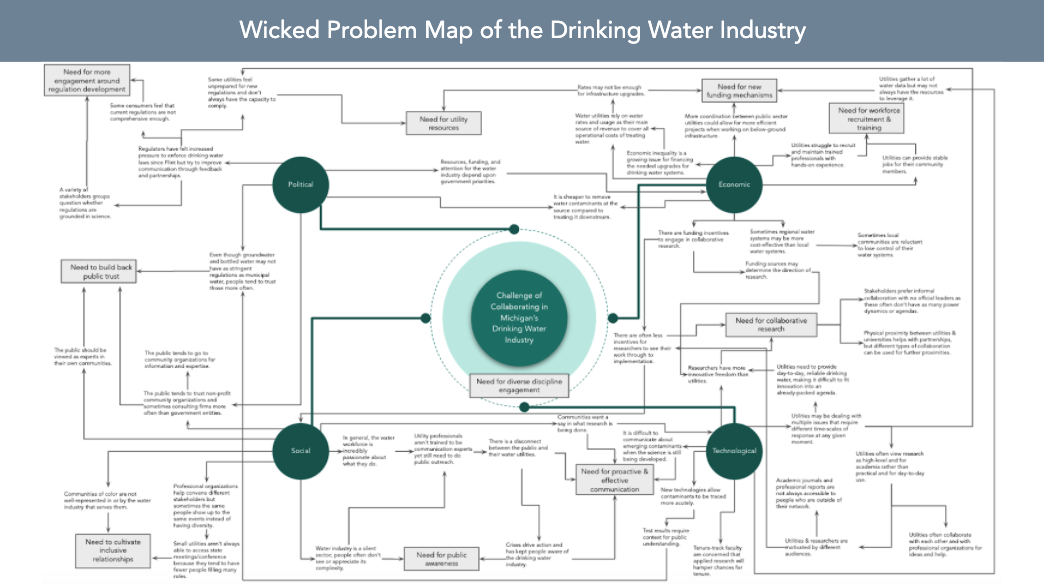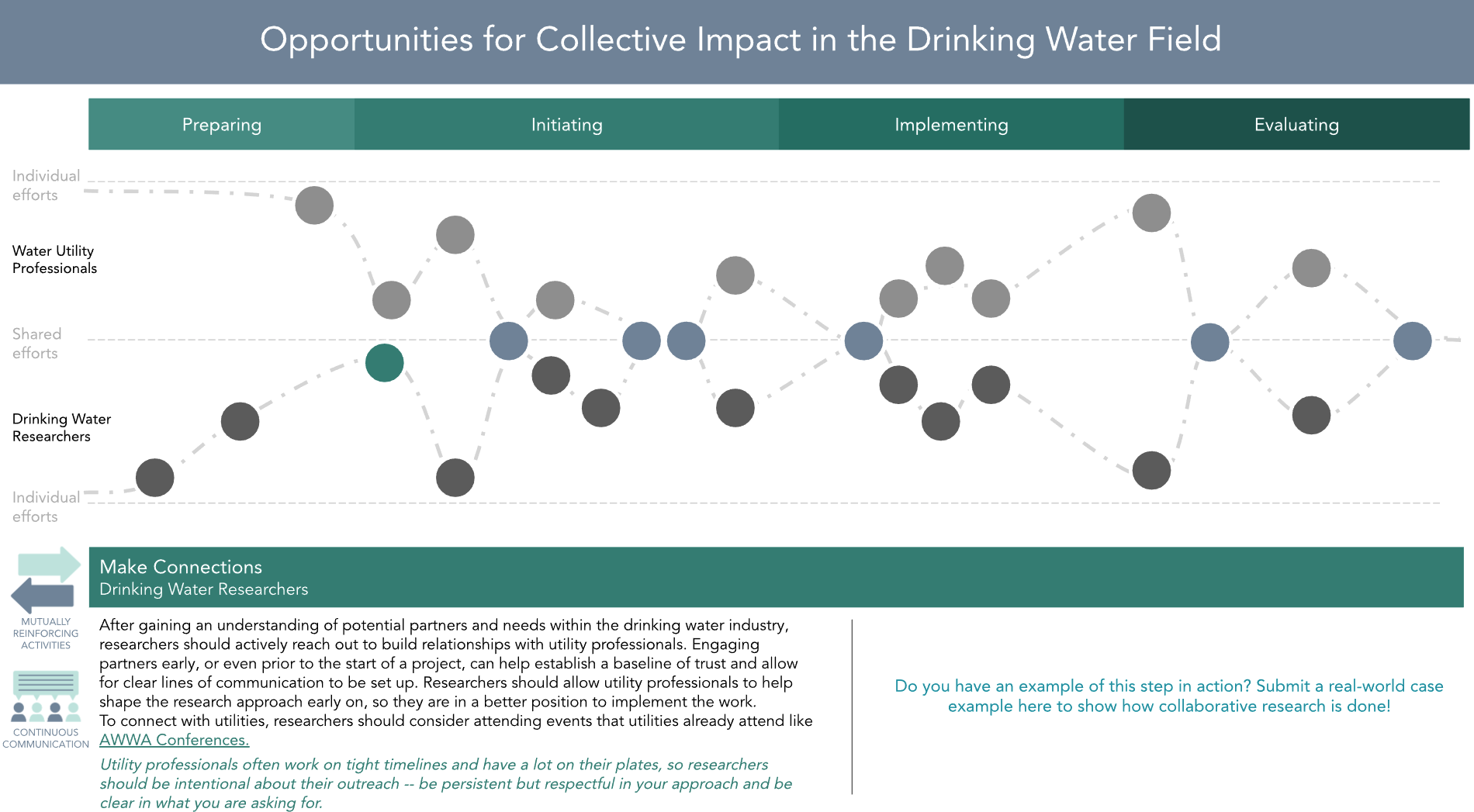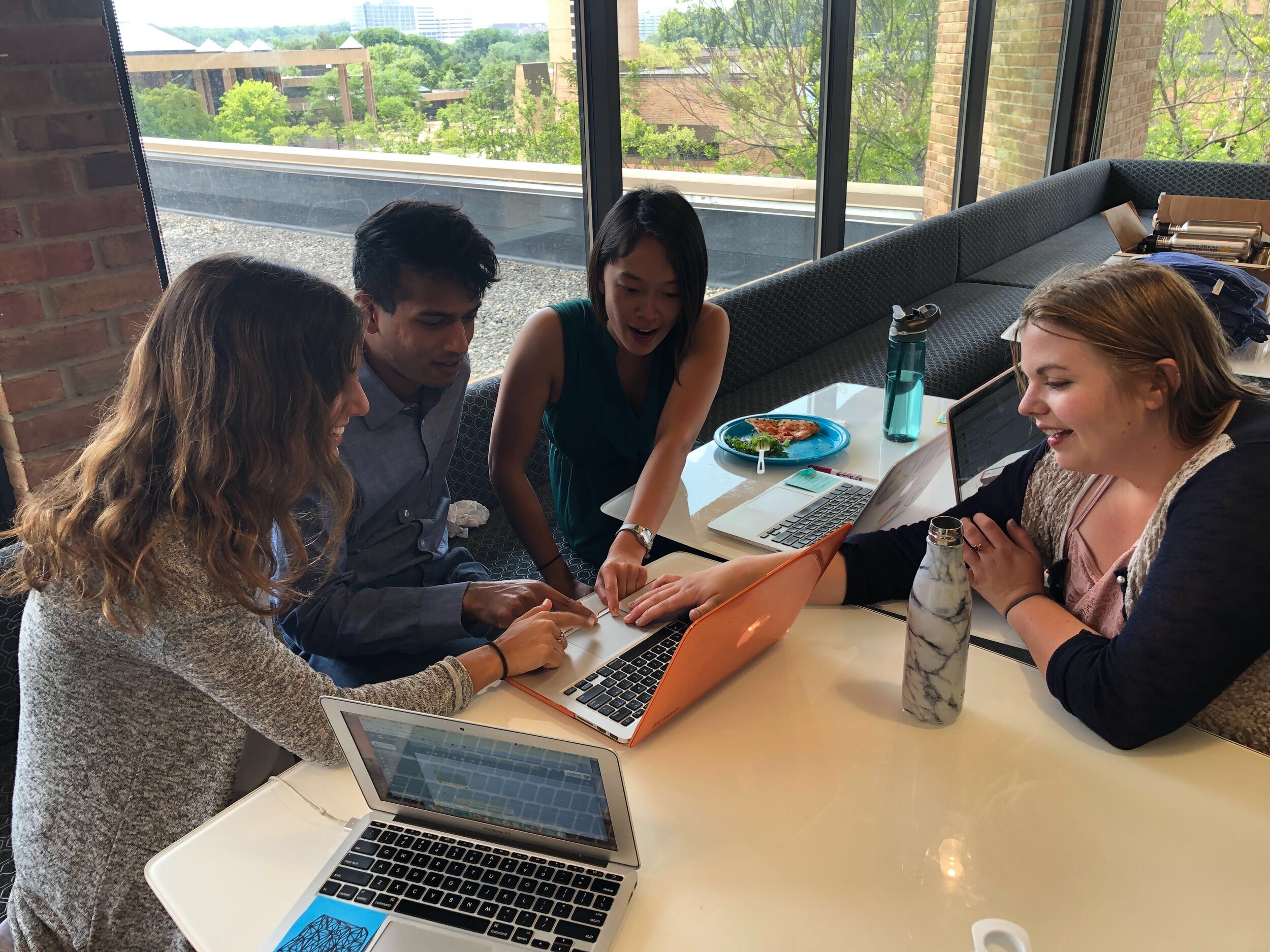Collaboration in Michigan’s Drinking Water Sector
What I Did
I led the design research for a 12-week deep dive into understanding how to improve collaboration between diverse stakeholders in Michigan’s drinking water industry. My team interviewed 70 stakeholders in 5 weeks, including community organizers, elected officials, regulators, and utility professionals, and synthesized that data into 10 core insights and 4 tools to help stakeholders understand other stakeholders and their priorities to find areas of opportunity to collaborate.
Role: Design Research Lead + Team Lead
Teammates
Brianna Broderick, UX Designer
Samir Shah, Design Researcher
Katie Karban, Business Designer
Stakeholders
Toolkit
Card-sorting
Qualitative analysis
Brainstorming
Sketches
Mockups
Storyboarding
Interviews
Desk research
Stakeholder mapping
The Process
Clarify the Goal
We wanted to dig deeper into the challenges of collaboration between utility professionals and water researchers and communicate and share our findings with the MI drinking water community.
Understand the Situation
We discovered that many additional diverse stakeholders, such as elected officials, regulatory bodies, and community organizers, needed to be considered due to their impacts on utility professionals. Many of these stakeholders shared a mix of overlapping and different priorities but often operated in silos from each other.
Bridge the Gap
We needed to identify and process who made up this broader system of stakeholders and find ways to highlight areas of opportunity to improve collaboration and ultimately support the safe, equitable and trusted delivery of drinking water in Michigan. After 70 interviews, card sorting, thematic analysis, and prototyping, our findings were distilled into 10 key insights and 4 unique tools that we shared back with all interviewees and at a MI drinking water conference in the fall.
How I Did It
Click through the gallery to read more about each step of my process.
















